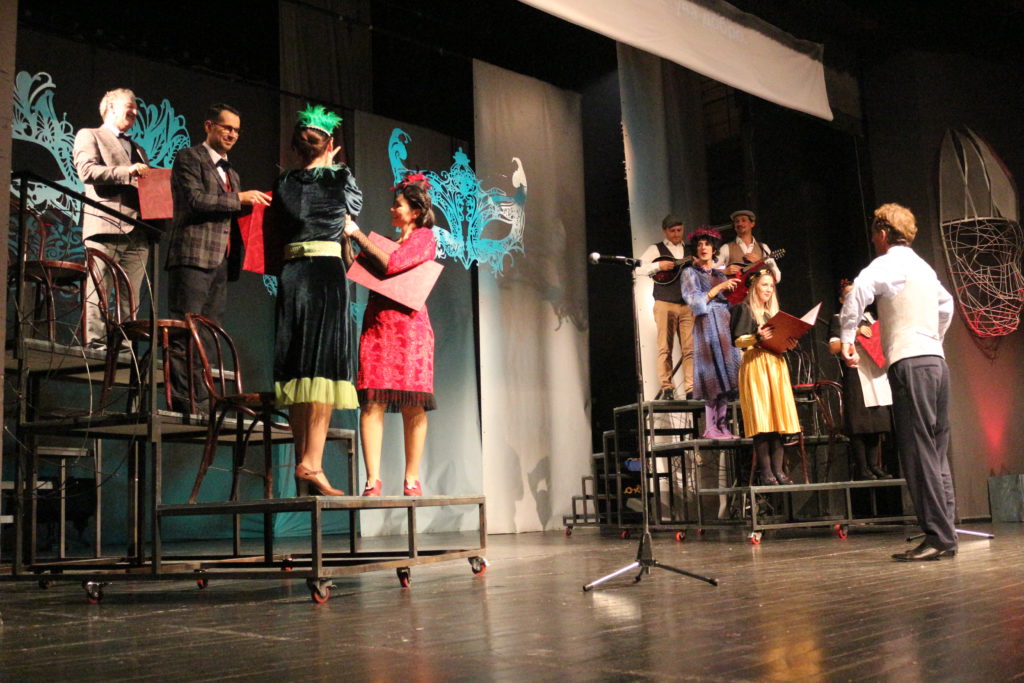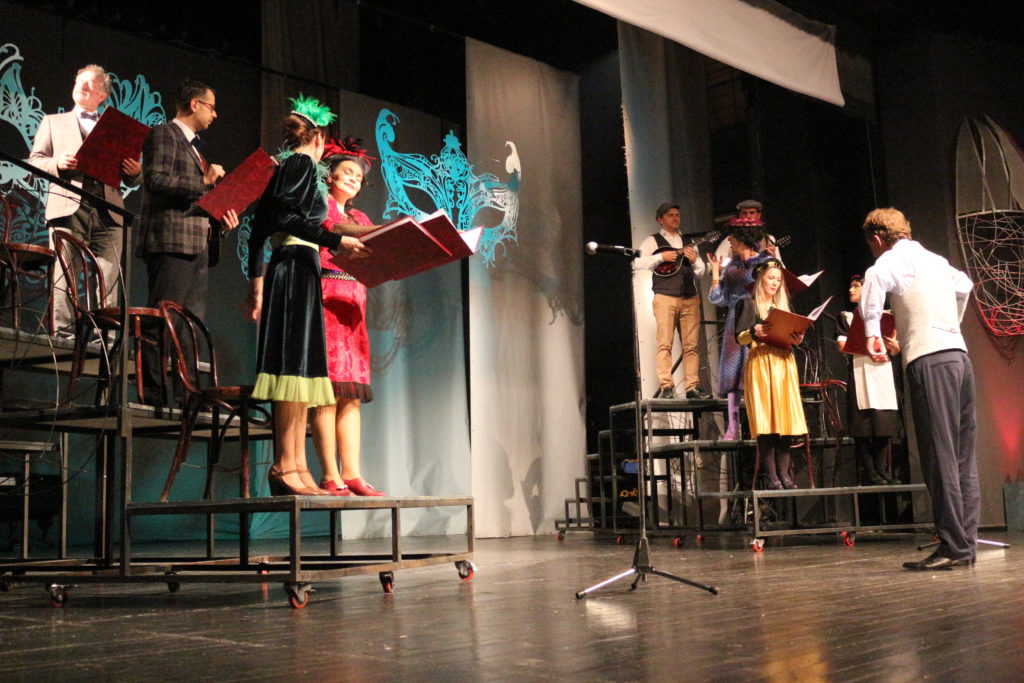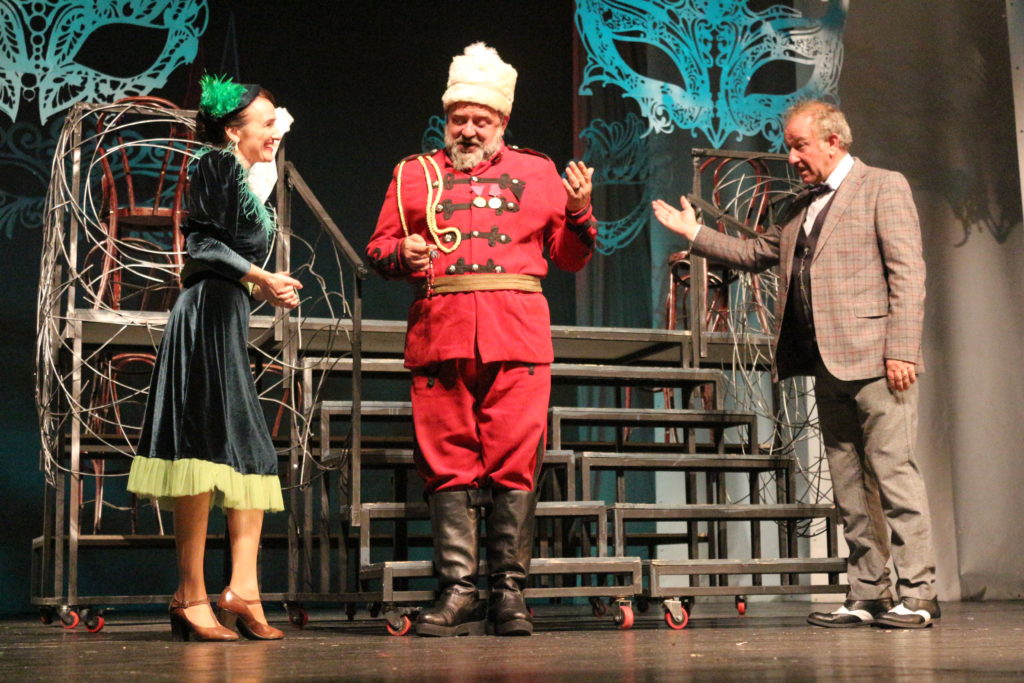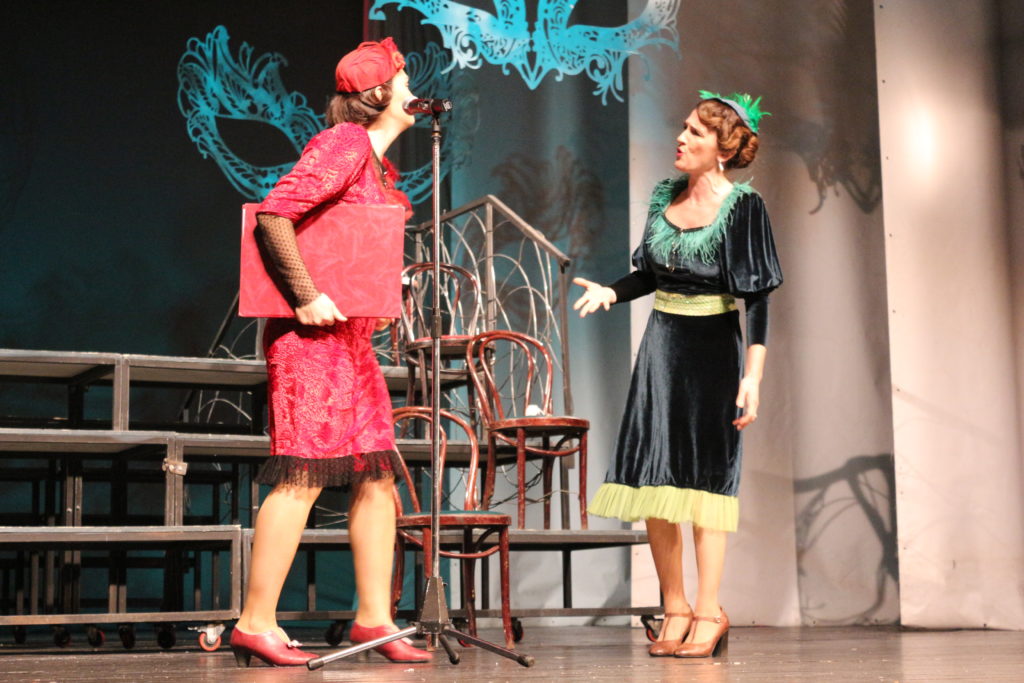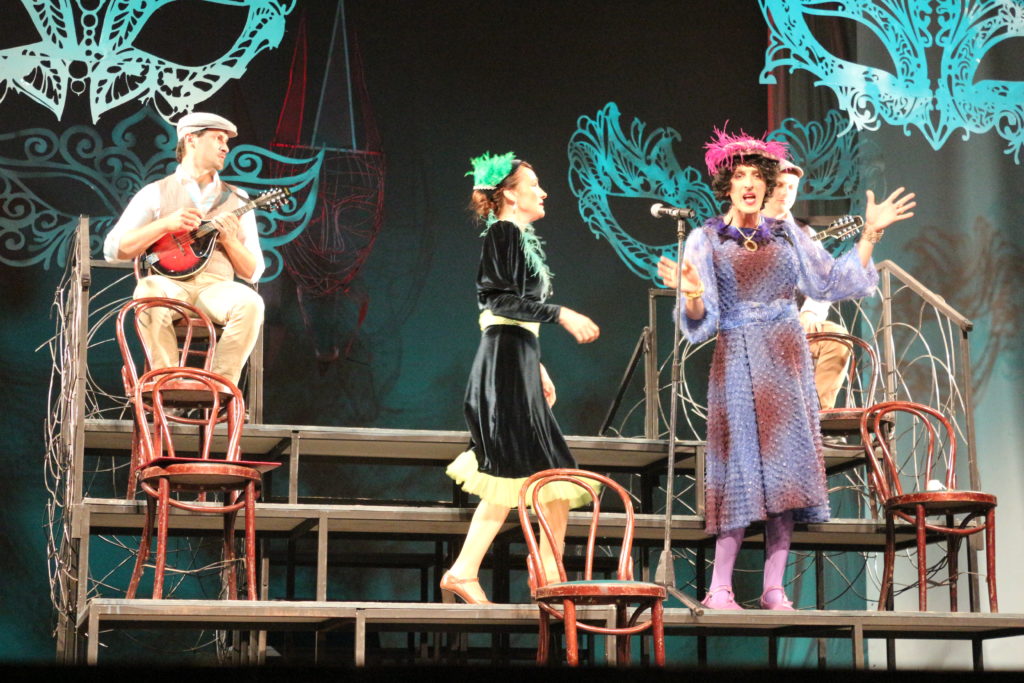( „The Carnivals of Korca“ by Spiro Chomora; director, Altin Basha; production, NTK from Prishtina; performed on SkupiFestival, October, 2019.)
The 13th edition of the International Theatre FestivalSkupiFestivalopened the play „The Carnivals of Korca“ by Spiro Chomora, and directed by Altin Basha. The play is about a domestic drama with a lot of singing (the action takes place during during the troupe’s preparations for the upcoming carnival), and talks about the local bossesNikolichand Olimbiand their customary right to determinetheir children’s marriages. There are various plots and clashes that cause funny and comical situations because of the generational clashes between the protagonists.
The director Basha approaches this domestic drama with a keen sense of style in an effort to build a play that will refer to the sensibility of the contemporary viewer. He succeeds greatly with his co-workers. The scenography and costume design are by Iliriana Ljodza Basha and the music by Trimor Domi.The low-key scenery (masks and a moving central platform on which the action takes place,) as well as the sumptuous costumes, point to the link of this lyric comedy to the Italian Comedy del Arte. Throughout the play, there is a Mediterranean spirit that will eventually culminate in the musical couplets, with the ensemble performing an enchanting vocal interpretation, and the stage is visually enriched with the masks and costumes of the aforementioned Comedy del Art, Clowns, Jokers. After all, we have a typical carnival atmosphere in front of us, as the title of the play actually is.
There is no weak link in the whole ensemble, although we have a slight dominance of the female part of it. In particular, we note the actor who plays the conductor (but also in various other roles), as well as the contribution of Adem Karaga from the Albanian Theater in Skopje.
This passage or link / connection between the domestic drama and the Italian Renaissance is directed by Basha subtly and skillfully, bringing a lot of fun and serenity to the scene. The play locates the city of Korca, as a place of cosmopolitan spirit and culture.
Perhaps, the only remark can be put on the long exposition of the action in the first part of the play, in which it seems to have been empty and with a certain drop in rhythm and tempo.
In any case, the drama ensemble of the National Theater of Kosovo from Pristina hosted a cheerful and entertaining theater evening.
